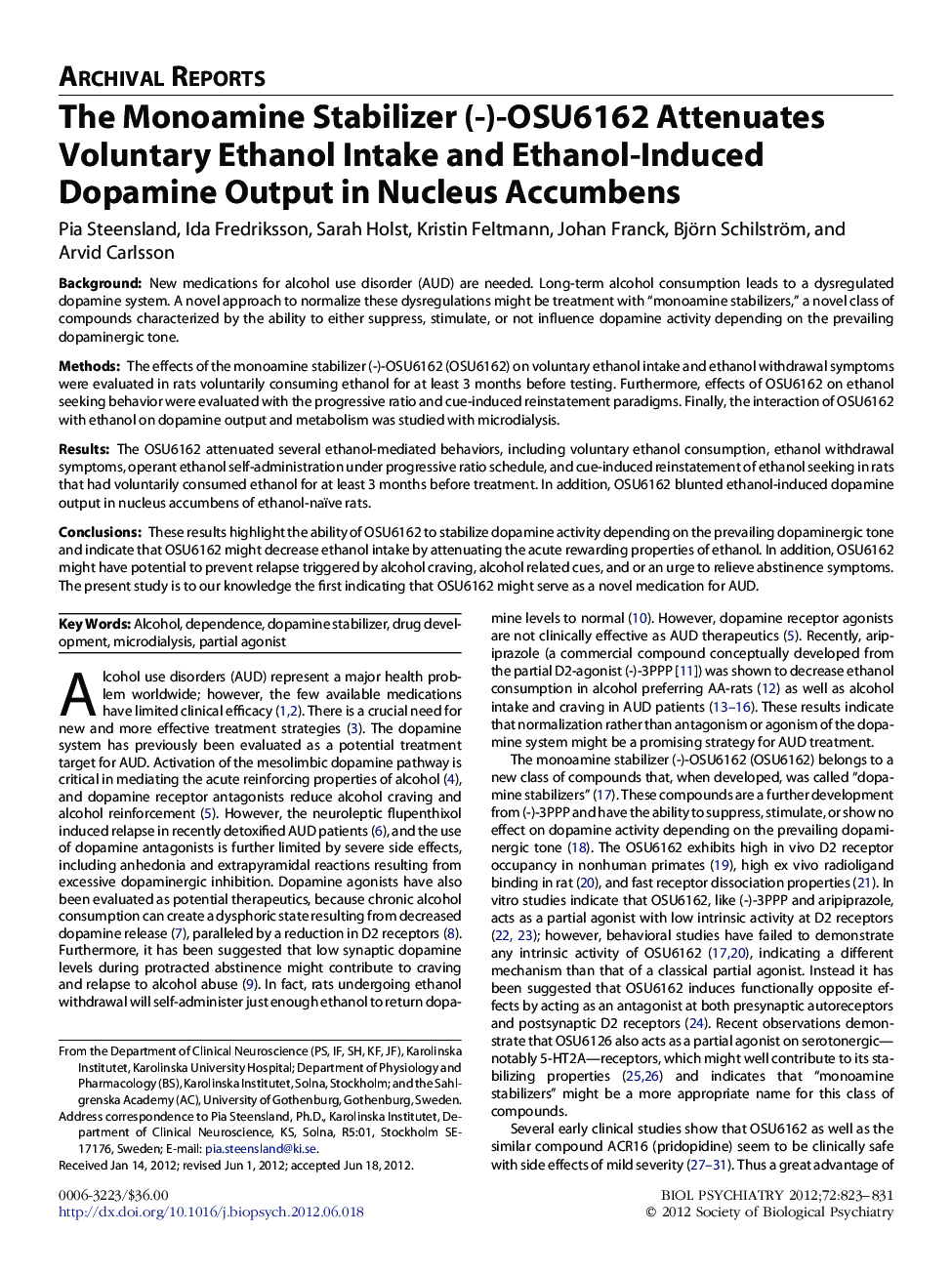| Article ID | Journal | Published Year | Pages | File Type |
|---|---|---|---|---|
| 6227480 | Biological Psychiatry | 2012 | 9 Pages |
BackgroundNew medications for alcohol use disorder (AUD) are needed. Long-term alcohol consumption leads to a dysregulated dopamine system. A novel approach to normalize these dysregulations might be treatment with “monoamine stabilizers,” a novel class of compounds characterized by the ability to either suppress, stimulate, or not influence dopamine activity depending on the prevailing dopaminergic tone.MethodsThe effects of the monoamine stabilizer (-)-OSU6162 (OSU6162) on voluntary ethanol intake and ethanol withdrawal symptoms were evaluated in rats voluntarily consuming ethanol for at least 3 months before testing. Furthermore, effects of OSU6162 on ethanol seeking behavior were evaluated with the progressive ratio and cue-induced reinstatement paradigms. Finally, the interaction of OSU6162 with ethanol on dopamine output and metabolism was studied with microdialysis.ResultsThe OSU6162 attenuated several ethanol-mediated behaviors, including voluntary ethanol consumption, ethanol withdrawal symptoms, operant ethanol self-administration under progressive ratio schedule, and cue-induced reinstatement of ethanol seeking in rats that had voluntarily consumed ethanol for at least 3 months before treatment. In addition, OSU6162 blunted ethanol-induced dopamine output in nucleus accumbens of ethanol-naïve rats.ConclusionsThese results highlight the ability of OSU6162 to stabilize dopamine activity depending on the prevailing dopaminergic tone and indicate that OSU6162 might decrease ethanol intake by attenuating the acute rewarding properties of ethanol. In addition, OSU6162 might have potential to prevent relapse triggered by alcohol craving, alcohol related cues, and or an urge to relieve abstinence symptoms. The present study is to our knowledge the first indicating that OSU6162 might serve as a novel medication for AUD.
